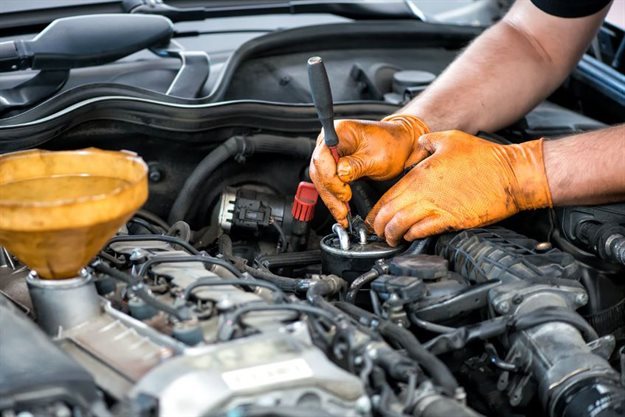
Top stories




Marketing & MediaWarner Bros. was “nice to have” but not at any price, says Netflix
Karabo Ledwaba 1 day


More news

Logistics & Transport
Maersk reroutes sailings around Africa amid Red Sea constraints

















Gunther Schmitz, the Chairman of R2RSA says that although there are a number of areas different stakeholders may differ on, safety and quality standards are not one. "We all agree quality workmanship, quality parts and safety of the consumer remain the number one priority." Schmitz says we feel these ‘scare’ messages from Original Equipment Manufacturers (OEMs) are nothing more than fear mongering detracting from the real issue of competition. "Competition is good for the consumer and is empowering - the right to choose being a fundamental human right."
Arguments about safety are also misleading when one considers automobile manufacturers regularly recall vehicles due to safety defects, and dealerships still sell cars in South Africa that don’t fulfil the United Nations ECE regulations on passive safety. "This makes the argument on safety rather disingenuous," says Schmitz.
"It makes sense that independent workshops should be replacing wear-and-tear and service items during the warranty period. Safety-related wear items are brake pads and tyres, which fall under ECE R 13 and ECE R 30 which is applicable in South Africa. Everything else falls under the warranty of the OEM and according to the current proposed code, warranty repairs will be carried out at the OEM-appointed service provider.
"Manufacturers are trying to lock us out of our own choices regarding servicing and repairs. They argue they want to protect their intellectual property, but the precedent in the EU and US with the strictest enforcement of intellectual property laws could show that these are not affected. The manufacturers are also arguing that not sharing resources is common practice in other sectors such as aircraft manufacturers and mobile phones, computers and accessories.
"In reality, this is not the case. For instance, the service and maintenance of aircraft is governed by the International Civil Aviation Organisation - not by the manufacturer. Airbus and Boeing don’t even make it into the top 10 aircraft maintenance, repair and overhaul providers. So the principle of R2R has long been applied in civil aviation, for one."
"Consumers must be given the option to fix the things they own. This also goes a long way to breaking up economic concentration – South Africa being one of the most unequal societies in the world," says Schmitz.
South Africa is merely following a worldwide trend that started in the US. The US automotive industry was in fact the first to attract legislation requiring automotive OEMs to open up maintenance and repairs to independent workshops, without the vehicle’s warranty being voided. In 2012, the US state of Massachusetts enacted a law requiring automobile manufacturers to give repair shops and consumers access to spare parts and diagnostic repair systems. It took just one bill in one state, and within two years a national memorandum of understanding was signed by manufacturers, repairers and parts dealers to avoid a domino effect in other states, and has since spread internationally.
Schmitz says no legislation is being drafted in South Africa that will in any way effect existing regulation around road safety or laws protecting the consumer: rather the Competition Commission guidelines recognise that if a consumer bought a car he or she owns it and has the right to choose a repairer.
On a final note, Schmitz says it is worth noting that in Europe and the US, the roadworthiness of vehicles is much higher than South Africa, even though the principles of R2R have been introduced decades ago. "We feel that the reality locally is that owners with older cars may have neglected the maintenance of their vehicles because of financial constraints. R2R is going to reduce the cost of parts thereby helping owners maintain their vehicles, and access to technical information, training and tools will only have a positive influence on safety," he concludes.